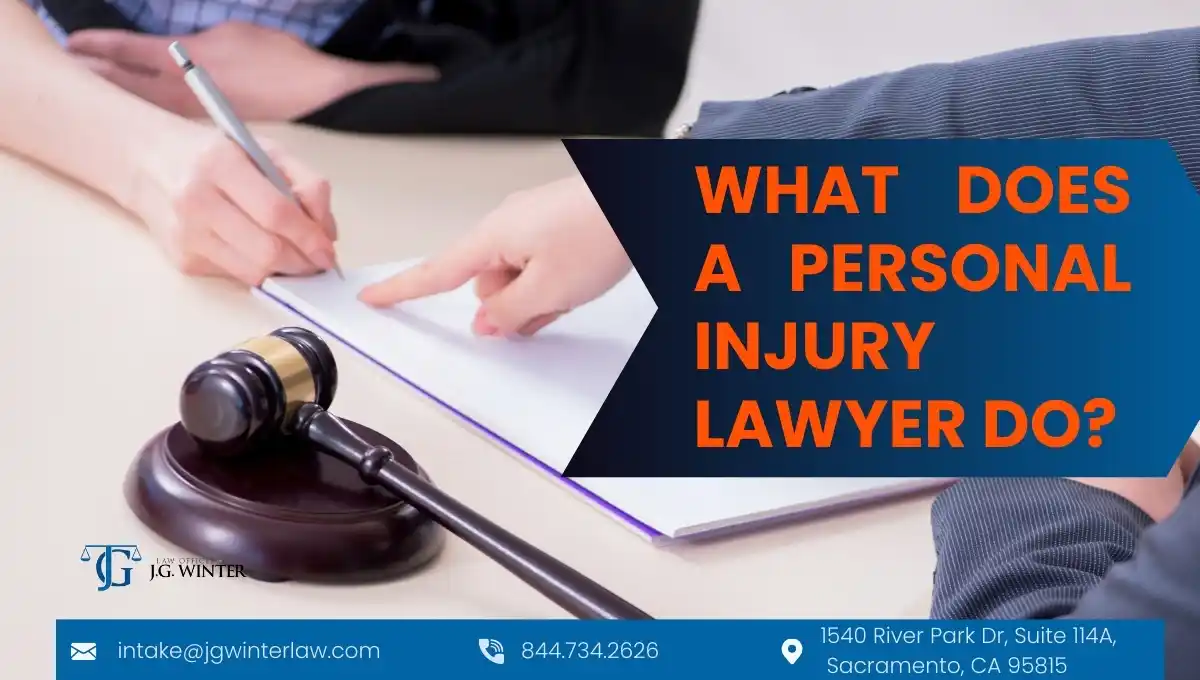When you’re injured, the stress can be immense. You have to cope with physical and emotional pain while managing a complex legal system filled with uncertain decisions. This is where a personal injury lawyer can help. An attorney will guide and support you through these legal challenges.
However, if you face a car accident case for the first time, you may feel unsure about hiring a personal injury lawyer. You may question whether it is necessary and whether a lawyer can help you secure the compensation you deserve.
To clarify these doubts, it’s important to understand the critical roles of a personal injury lawyer. The attorneys are key in advocating for you and safeguarding your rights throughout the legal process. Here are five key roles of personal injury lawyers:
1. Provide a free consultation
Most personal injury lawyers provide free, non-obligatory consultation.
The initial consultation lets the lawyer and potential client discuss the case and decide if they should work together.
During your free consultation, the attorney will listen to your account, review documents, and assess your case’s strengths and weaknesses. They will also explain potential legal outcomes, fees, and your rights, ensuring you understand the viability of your compensation claim.
This meeting also lets you assess the lawyer’s professionalism, knowledge, and how well they communicate before you decide to proceed.
2. Collect and examine evidence
A personal injury lawyer uses various methods to collect and examine evidence to build a strong case for their client. Here’s how we typically do it:
Collect physical evidence
The lawyer gathers and analyzes evidence, such as photos and videos of the accident and injuries, and documents the client provides. Strong physical evidence forms a solid foundation for establishing the facts of the case.
Obtain official records
The attorney collects official records like police and medical reports to understand the incident, the injury, and the medical treatment given. Official records provide legally recognized documentation of the event and its aftermath.
Interview witnesses
The lawyer identifies and interviews witnesses at the accident scene. Witness statements can strengthen a case by adding credibility and supporting the victim’s claims. Witness statements are especially valuable in disputed cases.
Consult with experts
For complicated cases or those requiring specific technical knowledge, the lawyer will seek advice from expert witnesses. Accident reconstructionists, doctors, engineers, or economists can offer expert opinions and evidence to help strengthen the client’s case.
Conduct investigations
Depending on the nature of the case, the accident lawyer might conduct additional investigations to gather more evidence. This may involve visiting the accident scene, obtaining surveillance footage, or consulting the victim’s doctor.
Evaluate strengths and weaknesses
Once the evidence has been collected and examined, the lawyer evaluates the case’s strengths and weaknesses. We evaluate the case’s acceptability and reliability within the legal framework. This critical evaluation is important in crafting a persuasive case strategy.
3. Assess the monetary value of the case
At this step, your personal injury lawyer will calculate the worth of your case. This process includes analyzing tangible and intangible damages. Tangible or economic damages include medical expenses, lost wages, and property damage. Intangible damages cover pain, emotional distress, and reduced quality of life. While economic damages are clear-cut, assessing intangible damages takes more effort. Lawyers evaluate how injuries have changed daily life, hobbies, and family relationships. Our lawyer will also talk to your friends and family to fully understand the accident’s impact.
The attorney combines this information with industry standards and past case outcomes to determine fair compensation.
4. Negotiate with insurance companies
After determining liability, lawyers send demand letters to insurance companies to start compensation negotiations. These letters detail the client’s claim, including incident specifics, injuries, and the compensation sought, and often include supporting documents like medical records and bills.
Negotiations usually begin with an adjuster’s initial offer, which might be lower than expected. Accident lawyers then work to secure fair compensation by continually communicating with insurance companies. We prepare strong arguments and evidence, effectively countering lowball offers to secure maximum compensation.
We aim to achieve favorable outcomes without litigation, saving our clients time and resources. However, we are also prepared to litigate if negotiations fail to secure just compensation.
5. Represent your case in the courtroom
If negotiations fall through, the case goes to trial. The trial begins with opening statements from your and the defendant’s lawyers. Your personal injury lawyer will briefly explain the case, what the evidence will reveal, and why you deserve compensation.
The lawyer presents evidence to support the client’s claims, calling witnesses to testify. During the trial, your personal injury lawyer will quickly object to any questions or evidence from the opposing side that break the rules. This is crucial to prevent prejudicial or irrelevant information from influencing the jury.
During the closing argument, your lawyer will summarize the case, highlight important evidence, and convince the jury of your claim’s validity. The closing argument aims to solidify the narrative built during the trial and appeal to the jury’s sense of justice and fairness. Depending on the outcome, your lawyer might file motions to challenge the verdict, ask for a new trial, or appeal to a higher court.
Each step demands careful preparation, persuasive skills, and deep legal understanding to represent your case effectively.
Contact J.G. Winter Law for a free consultation

Have you or a loved one been injured due to someone else’s negligence? Understanding the critical roles of a personal injury lawyer can be the first step towards justice.
Our experienced attorneys understand the intricacies of the legal system and are committed to advocating for your lawful compensation. We aim to make the legal process stress-free, allowing you to focus on your recovery without financial worries. We work on a contingency basis, meaning you don’t need to pay us until we secure your compensation.
Don’t wait—delaying action can weaken your case. Contact J.G. Winter Law today for a free, no-obligation consultation. Let’s secure the compensation you deserve together.




